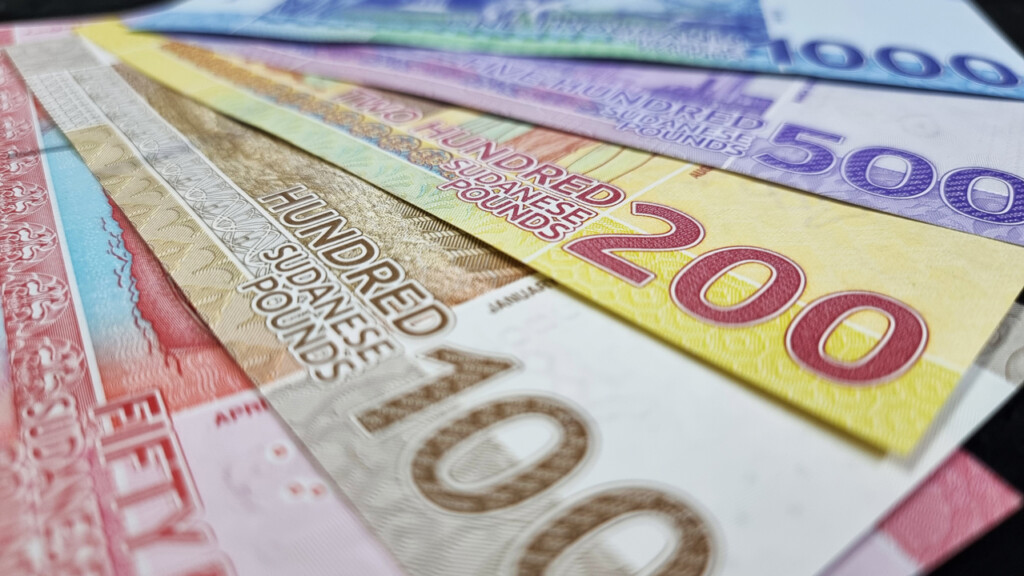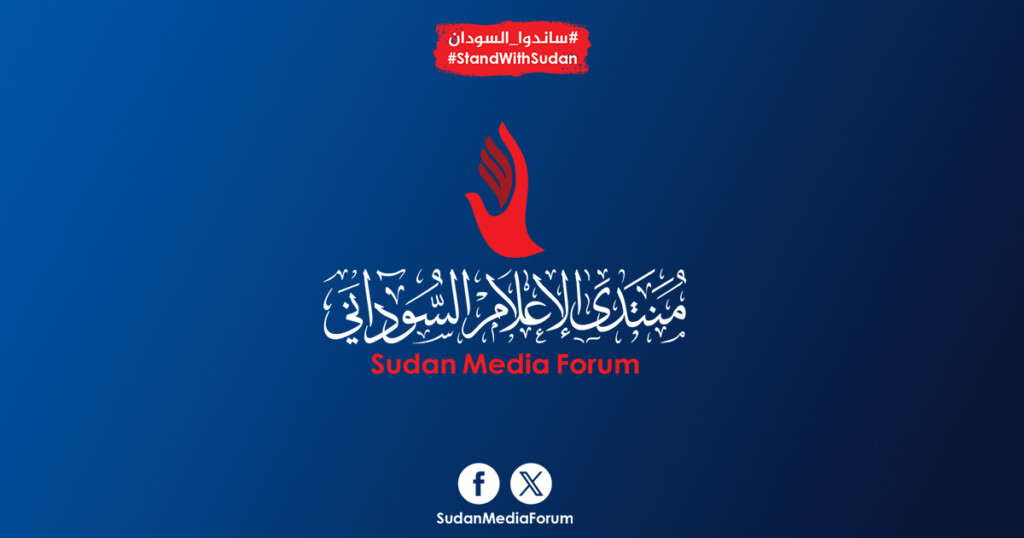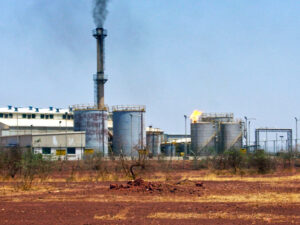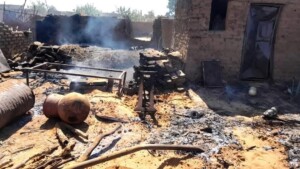Cash crisis exacerbates famine in Darfur and Kordofan

Sudanese Pounds (File photo: Andrew Bergman / RD)
Sudan Media Forum Joint Editorial Room – September 22, 2024
Prepared and edited by Radio Dabanga
Adam Osman, a resident of El Daein, the capital of East Darfur, was forced to transfer SDG50,000 from his banking application in exchange for SDG40,000 in cash, paying a commission equivalent to 20 per cent. Osman told Radio Dabanga that he desperately needed the cash to buy sorghum for his small family, “but I had to reduce purchases because of the deduction of the commission value”.
He stressed that El Daein is witnessing an unprecedented shortage of liquidity, and said that he had to move through his acquaintances in the market in order to transfer the amount.
Cattle owners struggle to sell heads from their herds to get the money needed to buy food commodities, as they have to wander between traders for more than a day to complete the sale process and get the necessary amount.
RSF-controlled areas in Darfur, Kordofan, El Gezira, and elsewhere are witnessing a severe cash liquidity crisis, with the commission for transfers from banking applications such as ‘bankak’ versus cash receiving ranging from 10 to 30 per cent.
Bank closures
Banking expert and former Central Bank of Sudan (CBoS) employee Mohamed Esmat said in an interview with Radio Dabanga’s programme that the outbreak of war led to the closure of about 12 of the 18 branches of the Central Bank of Sudan due to the war. He pointed out that the closure of the branches prevents the Central Bank of Sudan to know the conditions of the currency in order to replace or withdraw it and inject new denominations.
According to CBoS data, the banking system in the country consists of 38 banks detailed: “16 Sudanese banks / 22 mixed banks”, with 833 branches, 77 windows and 73 power of attorney offices, and Khartoum alone had 435 branches representing 49 per cent of the value of branches in Sudan .
A previous CBoS report revealed that 70 per cent of bank branches in battle zones have stopped. A year and a half after the outbreak of the war, some 427 branches in safe states are now operating, equivalent to half of the total number of banks.
Famine
In early August, the United Nations declared famine in Zamzam camp, south of El Fasher, which is home to more than half a million displaced people.
A spokesperson for the Norwegian Refugee Council (NRC) in Sudan, said in an earlier interview with Radio Dabanga that the famine was not caused by Sudan’s lack of food production. “The famine in Sudan is not about the availability of food. It’s also about the fact that people cannot afford the food anymore because they’ve been displaced and lost everything. The economy has collapsed, and they don’t have any means of livelihood anymore, because the prices are spiralling across the country.
“This is the reason why people are hungry. Not because Sudan is not producing enough food. It’s about being able to afford it.” NRC spokesperson Mathilde Vu told Radio Dabanga.
Central reasons
Banking expert Esmat stressed in an interview with Radio Dabanga that the printing of the currency and its various denominations is carried out according to a specific equation based on information available to complete the replacement process and ensure that there is no crisis or scarcity in the currency in circulation. It adds the cash currencies in circulation in any country that are exposed during the process of use and circulation to damage, loss, burning and loss, which requires the printing of an alternative currency within the process of replacement and exchange of currency, which is supervised by the central bank in the country concerned.
He explained that the departure of branches of the Central Bank from service in large areas leads to the absence of the required information and makes the process of printing currency difficult and leads to a defect in the money circulating in the hands of the public.
He stressed that the scarcity of cash usually has reasons related to an important and fundamental factor, which is the stability of the exchange rate. In the event of fluctuation of the exchange rate or a continuous decline in the value of the currency, the public resorts, in order to preserve the wealth he owns, to exchange the currency in his possession with hard currencies such as the dollar, or store his wealth in the form of gold or real estate. But the US Dollar and gold remain the most important in the process of replacing the local currency with a hard currency in order to preserve wealth.
The collapse of the banking sector
Banking expert Hafez Ismail, in an interview with Radio Dabanga, attributed the liquidity crisis to the absence of state institutions and the absence of banking work from large areas, and pointed out that the public resort to keeping cash, because the Internet is not available in large areas except through Starlink, and the security aspect plays a major role in the lack of circulation of cash.
He said that the banking system in Sudan is completely collapsed according to international standards, and said that 80 per cent of the basic banking business of credits and clearing does not work, noting that some banks have lost more than 80 of their reserves and assets.
Monopoly
Esmat stressed that the per centage of cash circulating in the hands of the public is a very high per centage according to estimates, but most of it is not in the hands of simple people, but in the hands of the rich category of merchants and businessmen, a category that causes the rise in the exchange rate and the scarcity of cash currency in circulation.
Ismail agrees with Esmat, saying that cash is monopolized by certain groups and said that not paying workers’ salaries for more than a year after the outbreak of the war also leads to a scarcity of cash, expecting the situation to get worse if the war is not stopped.
Esmat asserts that the cash movement in general is related to stability and confidence in the banking system in general. He predicted that the bulk of the cash at this moment is in the hands of people in areas far from the war in the safe states that have been mentioned.
Before the war broke out, reports indicated that about 95 per cent of the country’s SDG900 trillion was circulating in the shadow economy; however, most of the remaining 5 per cent, estimated at 45 trillion, was not fully monitored by the central bank; and most banks were failing to meet Basel minimum capital requirements.
But Esmat believes that because of the war, people do not keep large funds in their hands for fear of losing them and seizing them by the warring parties, whether these funds are in the form of amounts or in banking applications, where the person is ordered to open his mobile phone and reveal the value of the money in the bank’s application, for example.
Sudden disappearance of money
Adam Osman told Radio Dabanga that East Darfur state used to have a large cash mass due to multiple commercial activities, but the money suddenly disappeared from the city despite the continued closure of banks.
Some agricultural products such as watermelons, tobacco and okra have begun to reach the market, he said, but the lack of liquidity prevents the public from buying them.
He pointed to a significant rise in the prices of food commodities, where the price of corn SDG18,000 and wheat SDG16,000, with the lack of millet.
In Yassin locality in East Darfur state, the commission for transferring from your bank to cash ranges between 20 to 25 per cent with no money, and a person pointed to the lack of basic commodities and the significant rise in prices, and warned of the difficulty of communicating with neighboring markets, and the lack of daily business.
In Abu Karnaka, East Darfur, the commission for transferring from your bank to cash reached 15 per cent, and journalist Adam Radhi pointed out that the prices of the peanut crop were affected due to the lack of liquidity, in addition to the rise in commodity prices due to the closure of roads as a result of the autumn rains, pointing to the rise in the prices of fuel coming from South Sudan.
Growing suffering in West Darfur
In West Darfur, Hasan El Doma, a resident of El Geneina, was forced to transfer EGP 100,000 from his banking application “Bank” in exchange for SDG80,000 in cash with a commission of 20 per cent to buy his urgent living needs.
El Doma told Radio Dabanga that cash in El Geneina in West Darfur state is not available, and the commission for transferring from the ‘bankak’ app in exchange for receiving cash is 20 per cent.
From the Beida region of West Darfur, Ali Younis, a leader in the region, told Radio Dabanga that the suffering of the public was exacerbated by the lack of liquidity and that the transfer commission was 25 per cent, pointing to a significant rise in commodity prices, with a pound of sugar ranging from SDG3,000 to SDG4,000.
Prices in West Kordofan
In West Kordofan, Mohamed Ahmed from the Ghobeish area, said, “From 08:00, I didn’t find SDG100,000 in cash to buy fuel, and the stations do not accept your bank cards.”
He said that the commission for transferring from the ‘bankak’ app against cash is 10 per cent with no liquidity, pointing to the significant rise in prices, with the price of a pound of onions reaching SDG5,000 and the price of a piece of bread at SDG400.
In Um Jak in of El Adiya, West Kordofan, the public struggle to obtain money, and callers told Radio Dabanga that the value of transfers from your bank to “cash” has risen from 7 per cent to 10 per cent. A person pointed out that the liquidity crisis and the opening of roads led to a significant drop in the prices of basic commodities, as the price of a 50-kilo bag of sugar reached SDG180,000, and flour costs 25,000 kilos 75,000 and pointed to a decrease in a gallon of gasoline to 30 to 35 instead of SDG100,000. He said that the conditions in the areas of Jadallah, Um Khashmein and Zaafa are similar to those in Um Jack.
Other activists from West Kordofan told Radio Dabanga that the rate of bank transfers ranges between 2 to 10 per cent, and that the crisis reflected negatively on people’s lives, as they pointed to the difficulty of conducting buying and selling transactions through your bank applications, especially with merchants in markets except pharmacies and some shops.
In the military controlled El Nahda, a person reported a worsening liquidity crisis, accusing traders of greed because of the 15 per cent increase in the value of the transfer commission from the ‘bankak’ app in exchange for cash.
Blockade exacerbates El Fasher’s liquidity crisis
In North Darfur, food prices have skyrocketed in El Fasher, the capital of North Darfur state in western Sudan, amid a worsening cash crisis as the city remains under siege and fighting continues.
In the locality of Kutum in North Darfur, a person told Radio Dabanga that cash is not available and that the commission for transferring through your bank against cash is 10 per cent, and that traders are forced to deliver the amounts in installments within days due to the lack of liquidity. He pointed to the significant rise in commodity prices.
Decline in buying
In Nyala, which was considered the second commercial center after Khartoum, journalist Tahar Ali told Radio Dabanga that the city is witnessing the entry of new crops and agricultural products as the harvest approaches, which the public cannot buy due to lack of liquidity. He explained that the transfer centers from your bank to cash are limited and the transfer commission is more than 20 per cent.
In Kubum in South Darfur, a restaurant owner told Radio Dabanga that the commission for transferring from the ‘bankak’ app in exchange for cash amounted to 25 per cent, noting that people are living in tragic conditions due to the lack of income opportunities. The price of a meal of beans in his restaurant is SDG1,000 and the rest of the meals are SDG1,800. It points to a decline in sales due to lack of liquidity.
In Kalma camp in South Darfur, Sheikh Ishag Abdallah, head of the camp, told Radio Dabanga that a number of displaced people receive remittances from their families abroad through the ‘bankak’ app, but due to the lack of liquidity, they are unable to obtain money, noting that traders charge a 5 per cent commission to deliver the amounts.
In Kass and Abu Ajoura in South Darfur, resident Mohamed Hussein told Radio Dabanga that the lack of liquidity due to the autumn conditions, which led to the closure of roads and hindered the arrival of goods in addition to the deterioration of the security situation, and said that the commission for transferring from the application of your bank to cash ranges between 25 and 30 per cent.
Long journey to get cash
A resident in El Tadamon in South Kordofan said that the locality is going through an unprecedented liquidity crisis and that cash is not available in the markets, especially with the approach of the sesame harvest season in the region, and the caller explained that transfers through banking applications amounted to 5 per cent, and the per centage of purchasing goods through banking applications increased by 2 per cent from the price in cash.
He explained that the liquidity crisis has affected all commercial operations, especially wholesalers and livestock, as many traders are forced to go to the White Nile state to obtain cash with a difference of between 4 to 5 per cent, and traders are forced to resort to transferring their money through your bank for fear of looting on the roads.
People warned of the danger of the liquidity crisis on people’s lives, especially patients who are trying to travel to other states to receive treatment, as they find it difficult to obtain cash, which delays them from catching up with the dates set for them for operations and others.
People in Kadugli reported that there is no cash liquidity in the city and that the transfer process from your bank to cash is carried out by up to 15 per cent.
In Abu Jubeiha, South Darfur, trader Mohamed Ali says there is no shortage of liquidity and that the commission for transferring from your bank app to cash is 25 per cent. The lack of cash and the scarcity of goods have exacerbated the suffering of people, he said. He pointed to the weak purchase movement due to the lack of liquidity.
North Kordofan road tolls
An informed source in the capital of North Kordofan, revealed a shortage of cash liquidity and an increase in interest rates if transferred through the bank application.
The source attributed the scarcity of cash to the levies imposed by the Rapid Support Forces, which control all their entrances to trucks of goods coming from South Sudan or Dibba in the northern state.
He went on to say that the RSF asks traders to pay fees in cash, and imposes fees on goods according to their importance, as the truckload of sugar or flour pays its owner about SDG3 million, and if he does not have cash, he pays through the application of a bank at an interest rate of 20 per cent.
The source said: “Most of the banks in the white market empty safes and do not disburse customers only small amounts because of their lack of cash and the difficulty of communication between them and the Bank of Sudan to obtain cash amounts to fill the deficit.”
An employee in Um Rawaba, which is under the control of the Rapid Support Forces, described the liquidity crisis as a disaster, telling Radio Dabanga that liquidity was non-existent and that the prices of basic commodities were exorbitant and were steadily increasing, due to the fees imposed on goods on their way to the region.
Substitutes
Hasan El Douma, a caller from El Geneina, told Radio Dabanga that “the Chadian franc is the currency now circulating between West Darfur and Chad, where the exchange rate of 1,000 Chadian Francs (CFA) against the Sudanese Pound (SDG) is SDG18,000 for cash, and through the transfer by applying your bank SDG21,500, due to the lack of liquidity.”
Banking expert Hafez Ismail said in an interview with Radio Dabanga that people in some areas of the Nuba Mountains resort to dealing with the South Sudanese currency, indicating that the Sudanese Pound has become unabsolved due to the decline in its value around the clock.
Mohamed Ahmed from Ghobeish in West Kordofan said, “Sometimes I have to buy goods using your bank app and sell them for less than their price to get liquidity.”
A South Kordofan resident said the cash crisis had forced them to barter in business transactions and settle cash debts.
He also points out that some people have resorted to traditional means and barter of goods. However, in an interview with Radio Dabanga, Adam Osman expects to resort to commodity barter operations once the harvest operations are completed and agricultural production reaches the town.
This report is published simultaneously on the platforms of media and press institutions and organisations that are members of the Sudan Media Forum












 and then
and then